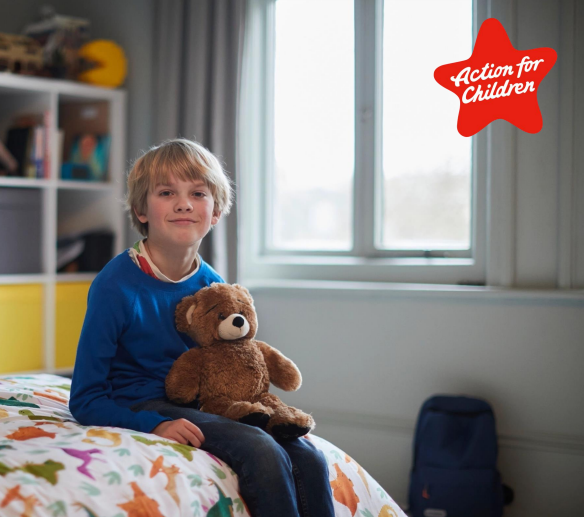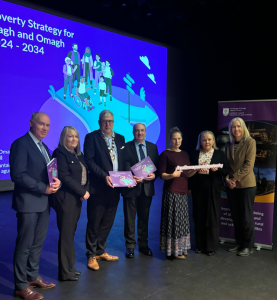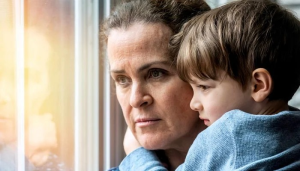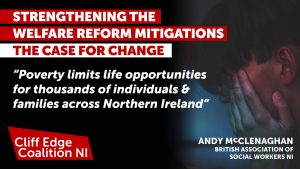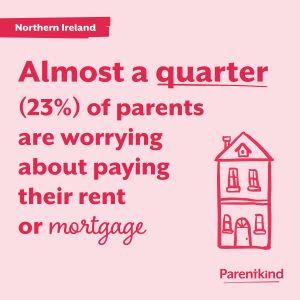A Place to Call Home: Report by Action for Children
17 September 2024
By Sheena McMullen
Last week, Action for Children launched a report across the UK called “A Place to Call Home” looking at the importance of a home in the children’s social care system.
Action for Children believe every child in the care system deserves a safe, loving home. They should receive the highest quality care, in a home that is well-matched to their individual needs, so that they can thrive.
But it’s widely recognised that care systems across the UK are failing to deliver good experiences and outcomes for every child in care.
Currently there aren’t enough of the right types of home – foster or residential – in the right parts of the country, to meet children’s needs. Too many children are in inappropriate homes, without the right support, without stability, and without the ability to nurture key relationships.
As part of the research informing the campaign, Action for Children spoke to many care-experienced young people – experts by experience. This is 19-year-old Paddy’s story.
“I was taken into care aged three. I was placed with a foster family and was eventually adopted. It was a steady environment until my adoptive dad passed away in 2019.”
Aged 14, Paddy went into residential care, moving away from the area and the people he had known for more than a decade. After a few months, he moved again, this time to a foster family over the border. When that placement broke down, he was ‘bounced around’ between temporary accommodation, spending his 18th birthday in a hotel room.
In July this year, Paddy’s placement was due to end. Four days before the deadline, no alternative accommodation had been found. For more than a week, he flitted between hotels and B&Bs. During this turbulent time, Paddy also lost his job. That meant he had no independent income and had to apply to Universal Credit.
When he was finally allocated a flat in Enniskillen, he had no money to support himself because of the five-week wait in receiving his first Universal Credit payment. Items from a foodbank and a donation of a sofa, plus a small advanced Universal Credit payment, allowed him to buy some basic essentials. But when a Young Persons Practitioner from Action for Children visited his new flat, he had just £6 in his electric meter and only cereal in the cupboards. The charity’s Crisis Fund supported him with £100 electric and £50 worth of groceries.
Reflecting on his experiences, Paddy said:
“You could have a million [housing] points but there’s no houses. The Housing Executive will put you anywhere, even up in Belfast. I spent my 18th birthday in a hotel room in Enniskillen. There’s nowhere to cook in a hotel room and takeaways are so expensive. The week I spent there was so depressing.
This year was my third time being classed as homeless. I’ve been messed about so many times and I know the system very well. Even when you get a flat you don’t get anything much in it. The Action for Children Crisis Fund was a big help. I got £100 of electric in July and I have about half of it left. But the flat has Economy 7 heating and one hour costs about £6. Most of the time my fridge is empty. You’re just sitting in the house, cold and depressed.”
When asked how the system could be better, his answer was clear – more funding and more houses earmarked for care-experienced young people. Despite the challenges he has faced, Paddy has just started a full-time apprenticeship course to become a mechanic.
I’m very independent and I’d rather be doing something than sitting around all day watching TV. But it’s hard. My last night out was about three or four months ago because I just can’t afford it. You can’t afford to have fun.
I’ve been in the system since I was three years old and it seems to be getting worse, not better. But I’m moving forward. I don’t want to be on benefits all my life.
Action for Children is calling on the UK governments to take immediate action on children’s social care, so children in care get the high-quality homes, love, and support they need to thrive. Across the UK, there is a need to create more good homes, to invest in a skilled and caring workforce, and to ensure the voices of children and young people are heard.
In NI, many also face multiple additional barriers linked to other policy areas outside of Health and Social Care. To name a few examples revealed in this report, housing allocations take no account of whether an 18-year-old has care-experience, and Universal Credit offers insufficient amounts to provide stability for more challenging transitions into adulthood in the absence of wider family or community support structures.
In Northern Ireland, Action for Children, recommends:
- Urgently prioritise anti-poverty legislation and increase investment in early help and family support.
- Fully commit to carrying out Recommendation 7 of the review to introduce a region-wide children and families’ arms-length body to improve accountability, coordination, and action on the wider reforms necessary for children’s social care.
- Release coordinated capital investment for public and voluntary sector provision of residential care and fostering.
- Urgently and specifically increase housing options and supply available for over-18s with care experience.
- Boost and stabilise residential workforce to include better pay and working conditions, using multidisciplinary teams with mixed skill sets, and emphasising trauma-informed training and practice.
- Improve the recruitment, training, support, and retention of foster carers (including kinship carers).
- Continue to support public and voluntary partners working together to develop improved fostering regulations and standards.
- Ensure children and young people are involved in the decisions being made about their care journey.
- Improve and extend transition support for people with care experience in the 18-25 age group.
Read the report for NI in full here.
Sheena McMullen is the Campaigns, Advocacy and Policy Advisor NI, Action for Children


